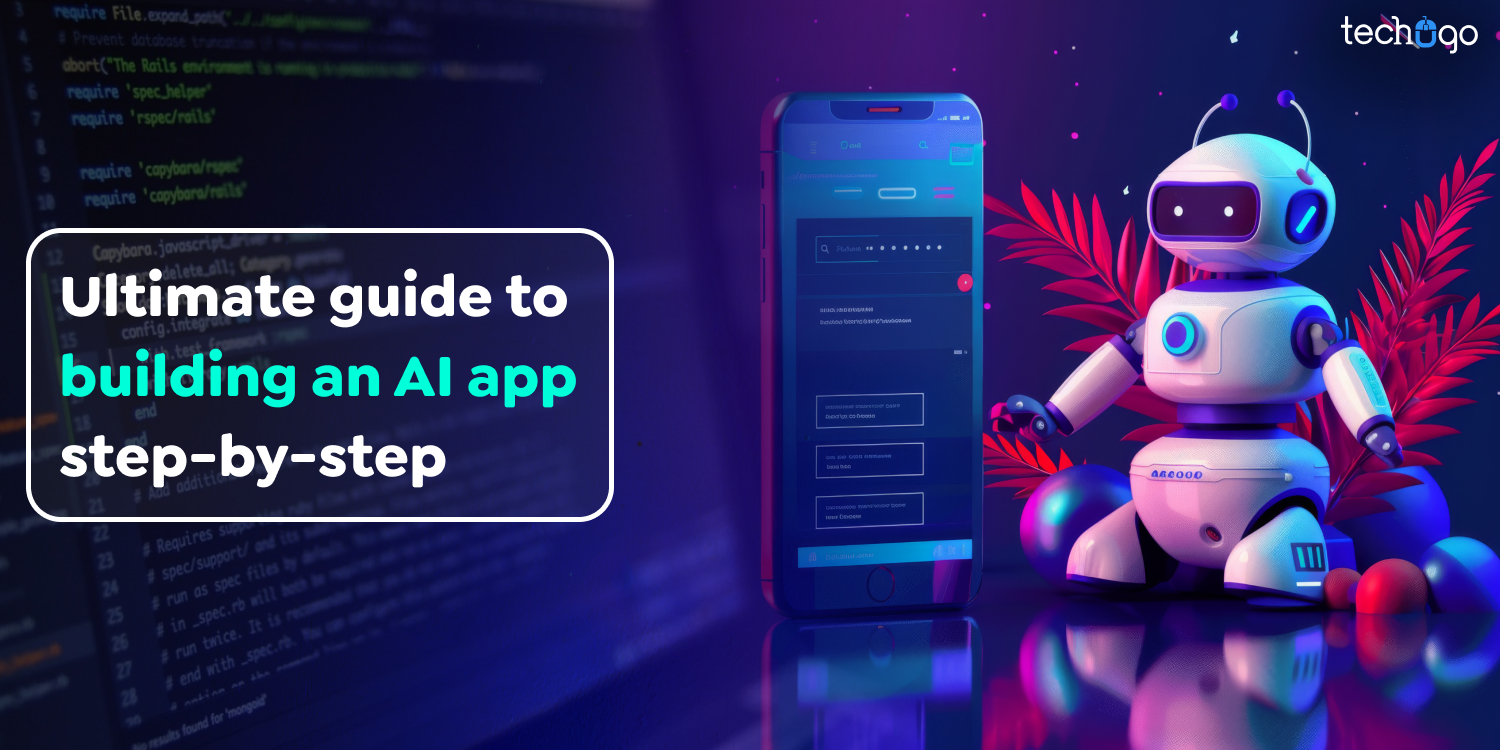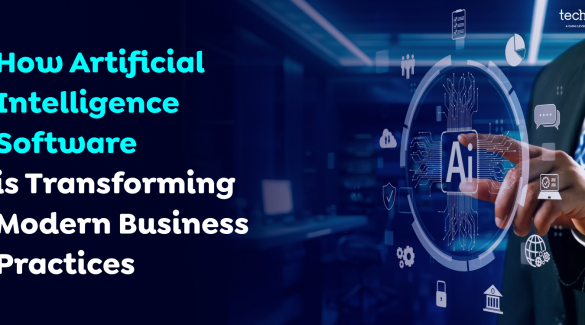27 Dec 2024
The Ultimate Guide to Using AI Recommendation Engines in Travel
Matthew Connor
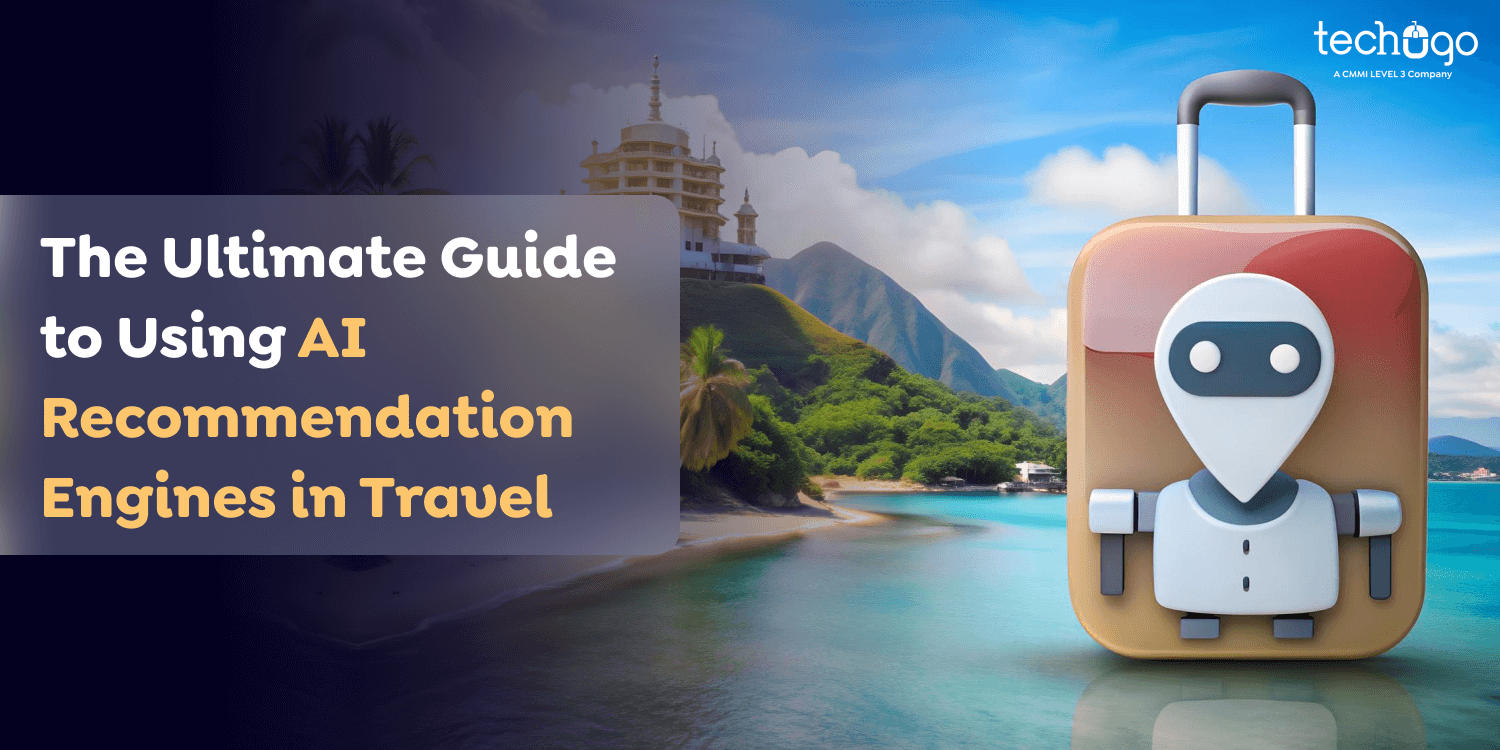
In today’s fast-paced travel industry, offering hyper-personalized experiences is no longer a luxury—it’s a necessity. With 76% of global travelers seeking streamlined solutions for the often stressful planning process, adopting innovative tools becomes essential. Enter the AI recommendation engine, a transformative technology that uses advanced algorithms and user data to deliver tailored travel suggestions. By identifying patterns and predicting customer needs before they even realize them, this tool creates seamless experiences. From curated itineraries to dream vacations, an AI recommendation engine revolutionizes how businesses connect with their customers, fostering loyalty and driving repeat sales.
For businesses, adopting this technology ensures a competitive edge. Real-time, predictive solutions enhance satisfaction, foster growth, and create lasting connections with customers. Embrace the future of travel and redefine experiences with an AI recommendation engine.
Understanding AI Recommendation Engines
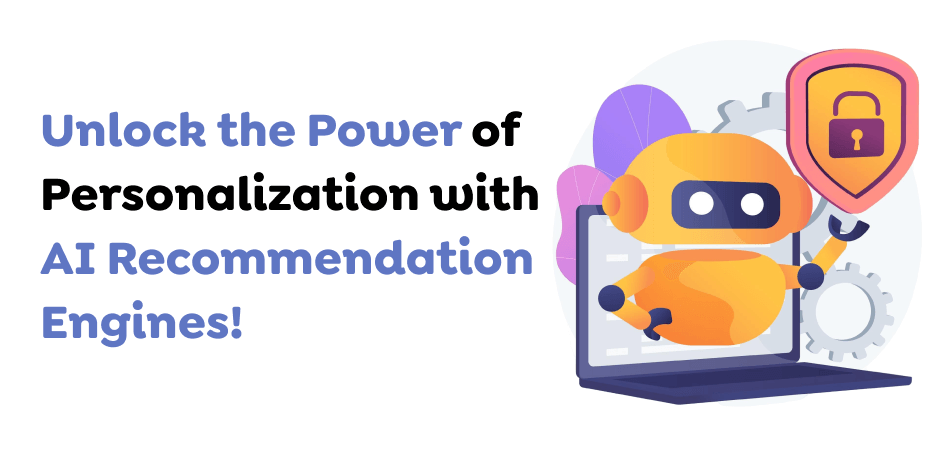
An AI recommendation engine is a cutting-edge technology designed to provide personalized suggestions to users. Analyzing individual preferences and behaviors helps businesses deliver tailored recommendations, enhancing the customer experience.
For example, imagine a person planning their next vacation and exploring travel options online. With the help of an AI-powered system, a travel business can analyze the person’s favorite destinations, preferred activities, and budget to offer the perfect travel package, streamlining the planning process.
Also Read : Unlocking Growth: The Importance of Choosing the Right Travel App Development Company
The Importance of Personalized Suggestions
Providing generic or irrelevant recommendations can frustrate customers, eroding trust in your brand. In today’s competitive market, personalization is a key differentiator. AI-driven recommendation systems ensure users receive relevant suggestions, fostering loyalty and driving conversions.
Essential Building Blocks
AI-powered recommendation systems include the following key components:
- Data Gathering Tools: Collect detailed insights from user activities, such as browsing history and preferences.
- Smart Algorithms: Analyze data to identify patterns and generate precise recommendations.
- Interactive Interfaces: Display personalized suggestions in an easy-to-navigate format for users.
How the System Operates
Machine learning technology powers these engines, analyzing and predicting user behavior. For instance, if a user consistently books tropical vacations, the system prioritizes tropical destinations in future recommendations. This ensures users receive highly relevant and useful suggestions, saving time and effort.
Now, let’s explore how recommendation systems are transforming the travel sector.
Also Read : Explore Globally: Uncover the Top 15 Travel Apps in Canada
Exploring Recommendation Systems in the Travel Sector
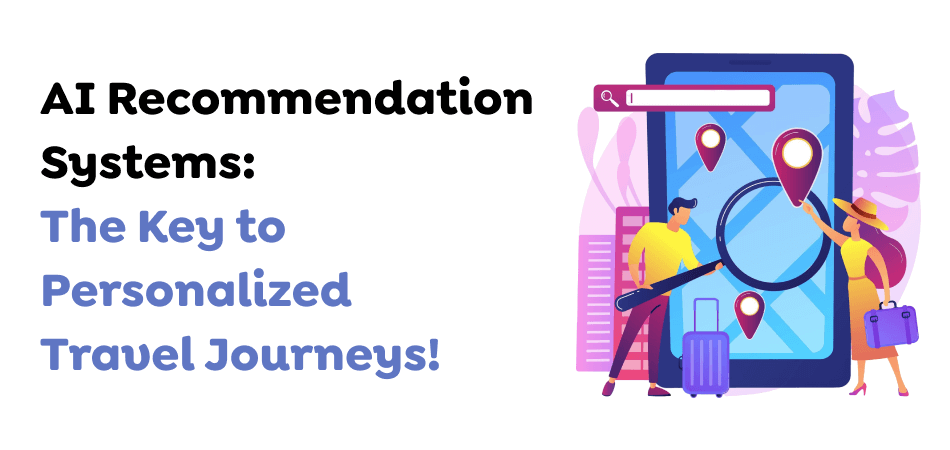
Recommendation systems have indeed transformed the ways in which travel businesses address their customers, serving them with recommendations that are more inclined to their behavior and interests. Next, let’s discuss the major categories of such systems and how they can enrich the travel processes.
1. Dynamic Updates with Real-Time Data:
One of the standout features of advanced recommendation systems is their ability to provide real-time updates. This way, travelers can access the most appropriate information to make the right decision. For example, these systems immediately alert users of any flight cancellation, change in the climate, or traffic jam.
Through constant updates on airlines, recommended hotels, and transportation means, recommendation engines automatically change the suggested itineraries. This empowers the traveler to be ready, to change things in case of an occurrence, and most importantly, to have a fantastic ride despite the immense occurrences.
2. Collaborative Filtering:
Collaborative filtering leverages the preferences of similar users to provide tailored recommendations. This approach predicts what a user might like by comparing it with others whom the system hassles similarly to the user.
For instance, if many users who favored “Destination A” also liked “Destination B,” the system will recommend both options to users with similar preferences. This approach fosters discovery by connecting travelers to destinations they might not have considered.
3. Content-Based Filtering Personalized Recommendations:
Content-based filtering also highlights the basics of a separate user. By considering the customer’s behavior and interests, these systems suggest decisions relevant to the particular type of traveler.
For instance, it has been determined that if the user tends to inquire about some historical places, the system will recommend facilities steeped in history. This makes the process more satisfying for the traveler because they get recommendations that match their likes.
4. Hybrid Models:
The Hybrid recommendation systems undergo the formulation of a single technique that provides precise and diverse recommendations. These models combine the features of both collaborative and content-based filtering and consider both a user’s profile and the actions of similar users.
This method improves the recommendation procedure, providing superior and diverse choices. Hybrid systems have a great advantage in that they strike a fine line between individualization, on the one hand, and creating a universal demand for travesty.
Moving forward, let’s discover how AI is transforming the travel sector.
Also Read : How to Build an App Like Waze: Key Features and Development Process
How AI is Revolutionizing the Travel Sector
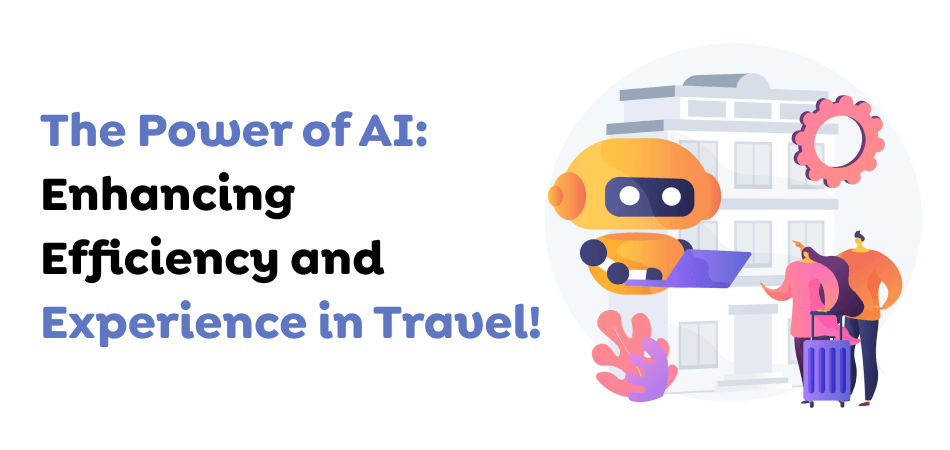
1. Targeted Marketing with AI:
AI helps travel businesses plan and develop better marketing techniques by collecting large amounts of customer data. This aids in understanding customers’ consumption patterns and tendencies, and the relative marketing message gets to the consumers at the right time; therefore, the campaigns have a high chance of getting high sales.
2. AI in Customer Service:
Artificial intelligence has greatly enhanced customer relations in the travel sector. In terms of customer service, ordinary chatbots and virtual assistants can give immediate responses at any time, answer questions, make bookings, and address minor concerns. This enhances customer satisfaction while freeing up human agents to handle more complex matters.
3. Dynamic Pricing Using AI:
Real-time market trends and customers’ and competitors’ prices are considered when determining the best price to charge. This dynamic pricing helps businesses stay competitive by adjusting rates based on demand, ensuring profitability without alienating customers.
4. Streamlining Operations:
AI simplifies business operations by efficiently managing a travel company’s scheduling, resource allocation, and inventory. These efficiencies help reduce travel app development costs, improve the quality of service delivery, and enable businesses to focus more on providing exceptional services to their customers.
5. Predictive Analytics for Smarter Planning:
Current and potential AI and data analytics applications enable travel businesses to predict trends and customers’ behavior. AI for trip planning and source identification helps organizations predict market fluctuations and, therefore, act more effectively.
By incorporating these innovations, travel businesses can drive growth and success in an increasingly digital world. Providing exceptional services through top-tier travel apps and optimizing internal processes with AI ensures that your company remains a leader in this evolving industry.
Also Read : AI for Enterprise: Transforming the Future of Business Through Innovation
How AI-Powered Recommendation Engines Work
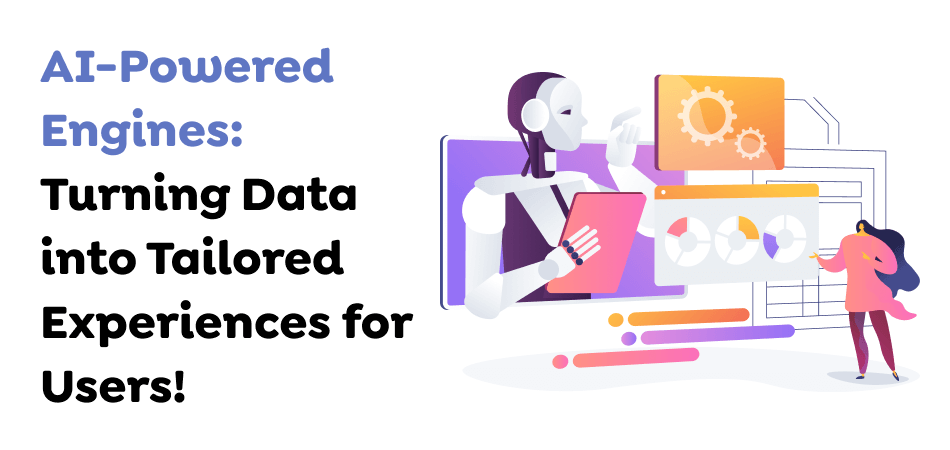
An AI recommendation engine has become vital for delivering personalized experiences in modern applications, such as travel apps. Developed by an AI app development company, these engines transform raw data into meaningful recommendations that align with users’ individual preferences, making suggestions highly relevant. The process involves continuous learning and adaptation to ensure recommendations meet users’ evolving needs.
1. Data Collection and Sources:
AI recommendation engines gather data from past booking and search histories, programs, and social media accounts. This extensive data set serves as the grounding for proposed travel recommendations and hence offers a good starting point for predicting what might suit a particular user.
2. Algorithms at Work:
Complex algorithms are sometimes involved once data gets collected, as shown next. Such algorithms usually include collaborative filtering, content-based filtering, and merged versions. These techniques allow us to understand patterns in users’ actions and their tendencies and, based on the help of such tendencies, find something that this user might like, given that a similar reaction was observed amongst other users.
3. Learning from User Interaction:
The remarkable aspect of algorithms that power recommendation systems is their capacity for enhancing themselves. However, the longer a user spends time in the app, the cooler the recommendations are planned to be. AI turns the suggestion forward and backward by the user’s response and action, making the app smarter and more precise at any time.
4. Real-Time Adaptation:
Recommendation systems worked on artificial intelligence also have the functionality of real-time updates. For example, if a user changes their travel dates or develops a new interest in a particular type of activity, the system instantly adjusts to suggest the most relevant options. This live interaction guarantees the suggestions are as relevant to the user’s needs at that given moment.
Also Read : AI in Recruitment: Revolutionizing the Hiring Process for Businesses
AI Recommendations for Enhanced User Engagement
Algorithm-based travel recommendation services for your application are not just a suggestion—they help build an emotional bond with users. For this reason, all companies use such high levels of personalization to ensure high user activity and satisfaction and hence increase the chances of conversion.
In the harsh, extensive travel industry, AI and recommendation engines are not a luxury but a necessity for companies to sustain and expand leads and relationships with their customers.
How Personalizing Travel Experiences Boosts Engagement and Increases Bookings
Giving a one-size-fits-all solution in your travel app isn’t enough to engage your audience anymore. Clients are searching for personalized solutions to meet their needs and specifications. Failing to address these needs can lead to less engagement, poor customer satisfaction, and eventual customer attrition. Related applications that provide highly customized proposals pose a danger of stealing your users and, with them, your brand and sales.
No one wants to receive an email that appears to have been sent to thousands of other subscribers. This is where an AI-based travel recommendation engine will be useful. Using AI integration, users can be guided through recommendations designed for their preferences, usage history, or travel profile.
Why Personalization Drives Engagement
- Increased User Engagement: When your travel app offers recommendations based on users’ histories, people will desire to engage with it. Consumers will spend more time searching, deciding, and arranging their holidays. This kind of engagement is tied to long-term loyalty and more visits to the application.
- Enhanced Customer Satisfaction: Interactivity fosters a perception of convenience, providing an individual approach to every user. When users find recommendations that fit certain criteria they like or use often, such as a hotel, place, or price, their satisfaction, and devotion to your platform increases.
- Higher Conversion Rates: Personalization has a direct influence on conversion rates. Recommendations are vital in converting the user into a customer; users are comfortable when given an option that suits their style or their pocket.
- Reduced Decision Fatigue: The process of travel planning can be exhausting since there are so many ways in which it can be done. The idea behind a good AI recommendation engine is that it makes decision-making easier by distilling what is important and keeping the user from drowning in a sea of possibilities.
Also Read : Understanding the Significance of AI in the Energy Sector: Key Benefits and Use Cases
Why Techugo is the Best Choice for Developing AI Recommendation Engines
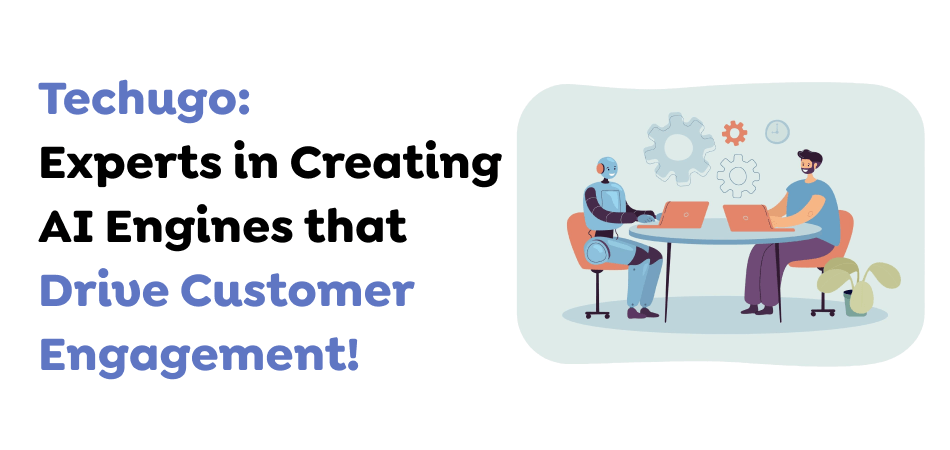
Techugo, a mobile app development company in Canada, is the ideal partner for developing AI-powered recommendation engines due to its deep expertise in AI and machine learning. For years, Techugo has been utilizing complex technologies to drive value and deliver customized, data-centric solutions for a wide range of industries. With a focus on people’s behavior and analytics, they can develop AI recommendation engines that not only spit out the top suggestions but also reevaluate the consumers’ path so they remain relevant in the market.
Techugo’s key differentiator is its focus on delivering custom, easily scalable, and easy-to-use AI solutions. Techugo develops recommendation engines that expand customer satisfaction and interaction through the use of complex algorithms that are complemented by real-time computing functions. Our team spends a lot of time with the clients to know their needs and expectations and to be able to deliver more than expected. Be it a travel company, a retailer, or an entertainment firm, Techugo’s AI recommendation engines increase the value businesses have with their customers, conversion, and long-term revenue.
Conclusion
AI recommendation engines have become a game-changer in the travel industry, offering businesses the ability to provide hyper-personalized experiences that boost user engagement and satisfaction. By analyzing user behavior and preferences, these engines deliver tailored suggestions that streamline the travel planning process, making it easier for customers to book their dream trips. As travel businesses adopt these innovative tools, they not only enhance their customer experience but also build long-lasting relationships that drive repeat bookings and customer loyalty.
The integration of AI-powered systems in travel apps also plays a crucial role in optimizing internal processes, from dynamic pricing to real-time updates, ensuring businesses stay competitive in an ever-evolving market. As customer expectations continue to rise, leveraging AI recommendation engines will be key to delivering seamless, personalized travel experiences that keep users coming back.
Get in touch with us to explore how AI recommendation engines can transform your travel business.
Get In touch
We are excited to here from you and let’s start something special Together. Call Us for any inquiry.
Write us
sales@techugo.caJust a call away
About you

